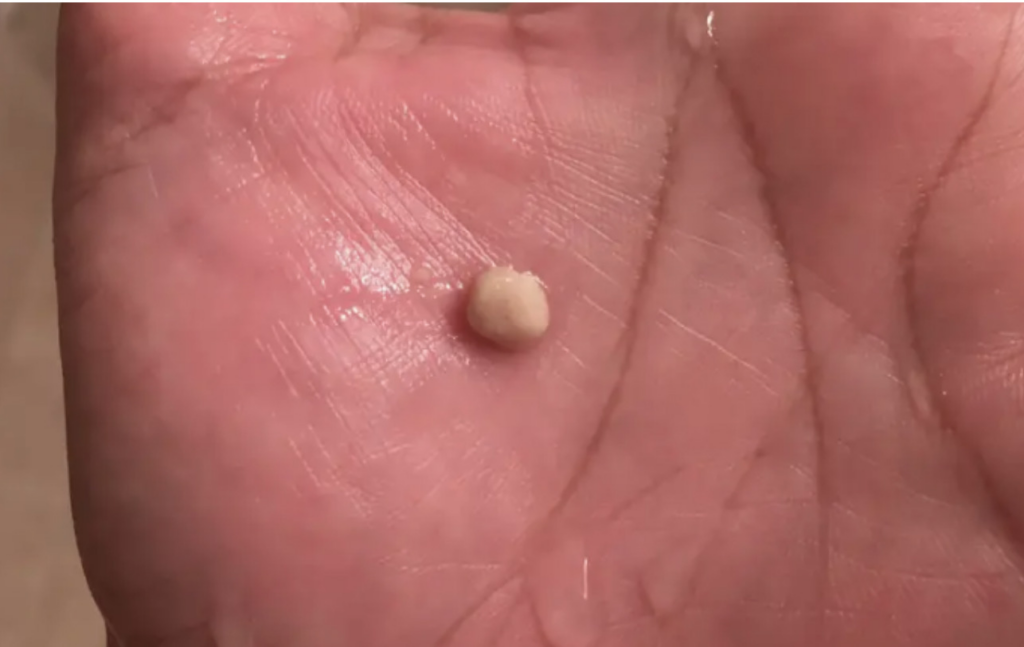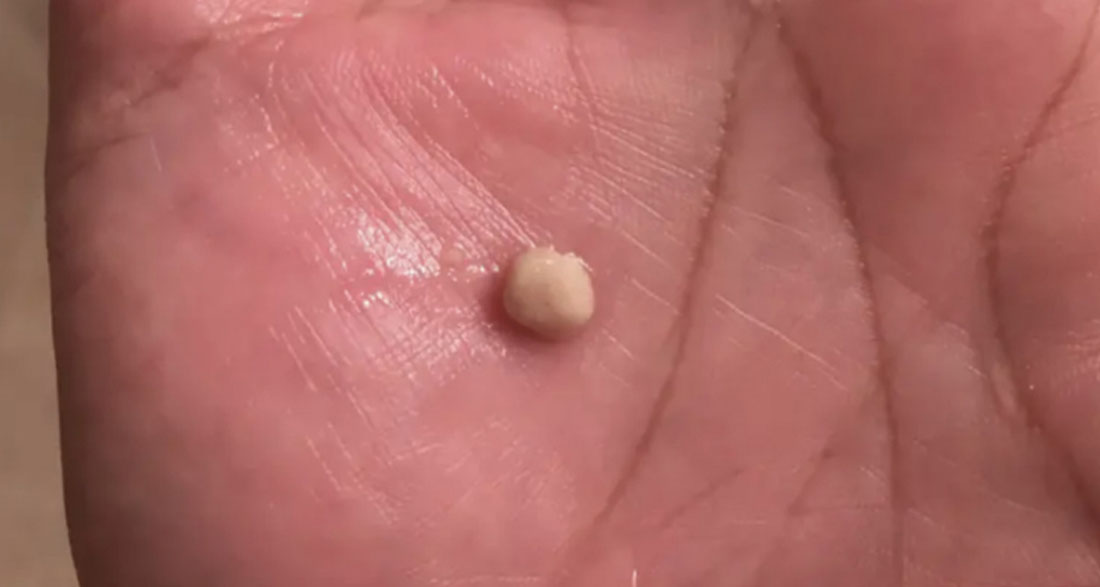Everything You Need to Know About Tonsil Stones
Have you ever heard of tonsil stones? They’re small, whitish-yellow lumps that can form in the crevices of your tonsils, and while they’re usually not a serious health problem, they can be pretty uncomfortable.
They might even leave you with bad breath that’s hard to get rid of. But don’t worry—this article will explain what tonsil stones are, how they form, what signs to look out for, and how you can treat or prevent them.
What Are Tonsil Stones?

Tonsil stones, or tonsilloliths, happen when bits of food, dead cells, and bacteria get trapped in the tiny crevices of your tonsils. Over time, these materials harden into small stones that can be tough to get rid of. Even though they’re usually harmless, they can cause some pretty annoying symptoms. You might find them in people of all ages, but they are most common in children and young adults.
How Do Tonsil Stones Form?
Your tonsils are full of nooks and crannies, and when food particles and bacteria get stuck there, they can mix together and create tonsil stones. As the debris builds up, it forms small, hard lumps. If you don’t clean your tonsils regularly or if your immune system isn’t strong enough to prevent bacteria buildup, the stones can grow larger and cause more discomfort.
What Are the Symptoms?
Tonsil stones don’t always cause symptoms, but if they do, they can make life pretty uncomfortable. Some common signs include:
- Bad breath: Tonsil stones are known for causing persistent bad breath.
- Sore throat: If the stones are big enough, they can cause throat pain.
- Difficulty swallowing: You might feel like something is stuck in your throat.
- Metallic taste: Some people with tonsil stones report a strange, metallic taste in their mouth.
- Swollen tonsils: Your tonsils may appear red or swollen.
- Ear discomfort: Some people feel pain or a strange sensation in their ears.
- Persistent cough: The body might try to clear the stones by coughing.
If you notice any of these signs, it’s a good idea to see a doctor or dentist who can check your tonsils and confirm if you have tonsil stones.
How Are Tonsil Stones Diagnosed?
Diagnosing tonsil stones is usually pretty straightforward. Your doctor or dentist will ask about your symptoms and perform a physical exam, often looking into your throat with a light. In some cases, they might use imaging tests, like an X-ray, or take a throat culture to make sure there’s nothing else going on. Once they confirm you have tonsil stones, they can suggest the best treatment plan for you.
Treatment Options
The treatment you need depends on how big your tonsil stones are and how much discomfort they’re causing. Here are a few common options:
- Self-removal: In some cases, small tonsil stones can be removed at home by gently pressing on your tonsils or using a cotton swab. Just be careful not to cause injury to your tonsils.
- Medicated gargles: Doctors might recommend gargling with special medicated mouthwash or saltwater to help reduce bacteria and discomfort.
- Mouth irrigators: These devices can help flush out the stones with a gentle stream of water.
- Surgery: In rare cases, when tonsil stones are large or causing a lot of pain, a doctor might suggest a surgical procedure to remove them.
Home Remedies
If you’re dealing with mild tonsil stones, there are some simple home remedies you can try to ease the symptoms. For example:
- Gargling with saltwater can help reduce irritation and remove some debris from your tonsils.
- Apple cider vinegar is thought to help break down the stones, though you should dilute it with water to avoid irritation.
- Stay hydrated to help keep your mouth and throat moist, which can reduce the chances of stones forming.
- Brush and floss regularly to remove food particles and bacteria from your mouth.
Preventing Tonsil Stones
While tonsil stones are common, there are ways to reduce your chances of getting them. Here are some tips:
- Take care of your oral health: Brush your teeth at least twice a day and floss regularly to prevent food particles and bacteria from building up.
- Drink plenty of water to keep your throat and tonsils clean.
- Avoid smoking and excessive alcohol consumption, which can contribute to tonsil stone formation.
- See your doctor regularly for check-ups, especially if you experience frequent throat infections or discomfort.
When to See a Doctor
Although tonsil stones aren’t usually dangerous, it’s important to see a doctor if you experience persistent symptoms, especially bad breath, sore throat, or ear discomfort. A doctor can give you an accurate diagnosis and recommend the right treatment plan for you.
Final Thoughts
Tonsil stones can be a little annoying, but they’re usually not something to worry about. With a bit of care and attention, you can prevent them or manage the symptoms when they do occur. If you’re having trouble with tonsil stones or any of their symptoms, don’t hesitate to talk to a healthcare professional who can guide you through the best treatment options for your situation.
What do you think of the story? Have you ever had tonsil stones or know someone who has? Share your thoughts in the comments below!






















